Published on 1 March 2024
Edition 78: March 2024
-
Helpful contacts
Employee Assistance Program: 1800 099 444
Nurse & Midwife Support: 1800 667 877
Nurse & Midwife Health Program: 03 9415 7551 or 1800 888 236
-
Upcoming dates
March 2024
1 International Wheelchair Day
7 Nursing & Midwifery Postgraduate Graduation Ceremony
8 International Women’s Day
10 Ramadan
11 Labour Day
14 Accreditation Final Assessment
18-24 Neurodiversity Week
18-24 Cultural Diversity Week
21 National Close the Gap Day
21 International Day for the Elimination of Racism
30 World Bipolar Day
31 Aboriginal Post-Graduate Nursing Scholarship applications close
31 Trans Day of VisibilityCheck out Events for more details.
-
Nursing & Midwifery Executive
Adjunct Professor Shane Crowe
Executive Director of Nursing & Midwifery
Phone: 8345 1463
Email: shane.crowe@wh.org.auDoug Mill
Director of Nursing & Midwifery
Division: Western@Home
Phone: 0400 807 938
Email: douglas.mill@wh.orh.auAdjunct Associate Professor Jo Mapes
Deputy Executive Director of Nursing & Midwifery
Division: Education & Learning
Phone: 0423 302 337
Email: joanne.mapes@wh.org.auKylee Ross
Director of Nursing & Midwifery Informatics (CNMIO)
Division: Digital Health
Phone: 0409 555 384
Email: kylee.ross@wh.org.auLena Pejcinovski
Director of Nursing, DPFC
Division: Custodial Health
Phone: 0422 818 187
Email: lena.pejcinovski@wh.org.auProfessor Linda Sweet
Chair of Midwifery, Deakin University/Western Health
Phone: 8395 1178
Email: linda.sweet@wh.org.auLisa Gatzonis
Director of Nursing & Midwifery Workforce
Phone: 0466 943 769
Email: lisa.gatzonis@wh.org.auMichelle Read
Director of Nursing & Midwifery
Division: Surgery, Endoscopy & Anaesthesia Services
Phone: 0478 260 237
Email: michelle.read@wh.org.auMonique Sammut
Director of Nursing & Midwifery, Sunbury
Divisions: Aged, General Medicine & Subacute Services and WPHU
Phone: 0412 769 423
Email: monique.sammut@wh.org.auNicole Davies
Director of Nursing & Midwifery, Williamstown
Divisions: Emergency Medicine & Intensive Care Services and Access & Patient Flow
Phone: 0435 656 190
Email: nicole.davies@wh.org.auRobyn Peel
Director of Education & Learning
Phone: 0468 608 141
Email: robyn.peel@wh.org.auProfessor Rochelle Wynne
Chair of Nursing, Deakin University/Western Health
Phone: 8395 8163
Email: rochelle.wynne@wh.org.auRohan Vaughan
Director of Nursing & Midwifery, Melton
Divisions: Clinical Support & Specialist Clinics and Drug Health Services
Phone: 0434 365 769
Email: rohan.vaughan@wh.org.auRyan Dube
Director of Nursing
Division: Mental Health & Wellbeing
Phone: 0420 228 035
Email: ryan.dube@wh.org.auAdjunct Professor Tanya Farrell
Deputy Executive Director of Nursing & Midwifery/Director of Maternity Services
Division: Women’s & Children’s
Phone: 0468 830 755
Email: tanya.farrell@wh.org.auVal Dibella
Director of Nursing & Midwifery
Division: Cancer Services, Cardiology & Specialist Medicine
Phone: 0466 489 687
Email: val.dibella@wh.org.auWendy Giddings
Director of Nursing & Midwifery, Bacchus Marsh
Divisions: Western@Home and Integrated Community Health Services
Phone: 0458 603 897
Email: wendy.giddings@wh.org.auWendy Watson
Deputy Executive Director of Nursing & Midwifery
Division: Best Care Governance & Support
Phone: 0478 305 046
Email: wendy.watson@wh.org.au
From Shane
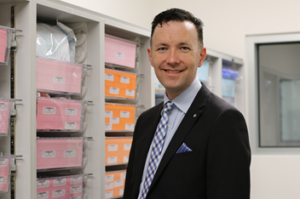
Welcome to our newest early-career nurses and midwives that have recently joined the Western Health team through our various graduate programs. Welcome to the best professions in the world! You have joined a health service that is committed to supporting and developing you to thrive in, what I hope is, a long, rewarding and enjoyable career here at Western Health. I hope you are settling in and starting to get to know your new colleagues.
Mental Health Nurses Day was recently held on 21 February 2024, celebrating these specialist nurses and raising awareness of the profession. It is an opportunity to highlight the unique and rewarding career that mental health nursing brings and celebrate our colleagues in this important specialty. Our Mental Health & Wellbeing nurses are incredibly special people that care for people during often the most difficult times of their lives in a way which enables and supports their recovery. Their ability to establish relationships, listen, understand, hold on to people’s hope and to work so innovatively and creatively is inspiring and my thanks to all of you for the brilliant work that you do every day.
To support our Mental Health & Wellbeing nurses, we recently launched our new Mental Health & Wellbeing Nursing Workforce Sub-Plan 2023-26. This is a sub-plan of our overarching Nursing & Midwifery Workforce Plan and has been developed following extensive analysis of our data and consultation with our workforce. I sincerely appreciate the insights, ideas and feedback of everyone involved, which has resulted in a robust, ambitious yet achievable plan to ensure that this important workforce is able to meet future challenges and requirements.
This month we recognise the achievements of our nurses and midwives that recently completed their postgraduate study in our annual Postgraduate Graduation Ceremony. We all know that both nursing and midwifery are professions that require life-long learning, and at Western Health we support this through an extremely wide range of post-graduate courses through a number of university partners. These nurses and midwives have successfully taken the next step in building their clinical expertise and critical thinking through formally completing a formal post-graduate qualification. They are our future clinical leaders and a huge congratulations to all of you on this significant career milestone!
This month on 14 March 2024 we will have a final assessment accreditation visit. On this day two ACHS Surveyors will visit us to review a couple of areas identified in December as requiring some improvement; namely medical credentialing processes and the reporting of training data. We have undertaken considerable work over the past weeks to fully review and rectify issues and improve these areas. As part of this visit the Surveyors will visit our wards and clinical departments to validate the work that has been done. I am confident the Surveyors will be impressed with the work undertaken to address the two areas identified in December as requiring some improvement and will appreciate another opportunity to see Best Care in action at Western Health.
This month we are commencing our ongoing Standard of the Month program, which will continue to run into the future to facilitate continuing improvement, awareness and education to support the provision of Best Care and the continuing compliance with the National Safety & Quality Health Service Standards. This will involve activities and events that align with each Standard that are designed to help staff keep up-to-date and aware of requirements so that we remain always ‘accreditation-ready’. We aim to have some fun along the way too! This month we kick it off with Communicating for Safety, and I encourage you to get involved.
Negotiations continue between unions and the Victorian Hospitals’ Industrial Association (VHIA) for the next nursing and midwifery enterprise agreement. The current agreement expires on 30 April 2024, and the parties have been meeting usually two days per week to discuss both the employee and employer claims. There has been some progress with some claims being adjusted to allow for agreement, however, there does continue to be claims that remain unresolved where parties have yet to reach agreement. Many of the unresolved claim are ones that do not align with the Government’s wages policy. During this month unions will start to hold report back meetings where they will give details on how the negotiations have progressed. I continue to be hopeful that an agreement will be reached prior to the current agreement expiring and will keep you updated.
Finally, sometimes there are systems and processes that we have to do at work that are ‘stupid’, as they take time and do not really add any value. Western Health will soon be launching a new improvement program called Getting Rid of Stupid Stuff (GROSS). This program aims to identify and address inefficiencies in our day-to-day routine, freeing us up to get on with our core work. Inspired by a Hawaii Pacific Health initiative, it will provide a formal mechanism for staff to nominate poorly designed or unnecessary work, which is then triaged for action or further investigation, depending on complexity. In the first two years of the Hawaii Pacific Health initiative, staff submitted 500 suggestions, leading to changes that removed thousands of hours of administrative time. We hope to achieve something similar – empowering you to tell us about your pain points, confident in the knowledge that we’ll address your ideas, enact change where possible and appropriate, and keep you looped in on progress. In essence, it’s a sophisticated version of a suggestion box! So, start thinking about the stupid stuff that you encounter each day!!
Shane Crowe
Executive Director, Nursing & Midwifery
This month we are focusing on...
 Standard 6: Communicating for Safety
Standard 6: Communicating for Safety
An ongoing Standard of the Month program has been introduced to support us to remain ‘accreditation ready’ at all times. This involves a focus on one Standard per month, with communications and walkarounds to help staff be aware of how Best Care at Western Health reflects this Standard, to ask staff possible Surveyor questions and answers, and to walk in a Surveyor’s shoes to see what our practice at Western Health looks like.
We are excited that Communicating for Safety is to be the focus of the first Standard of the Month. This will run from Monday 4 March to Friday 29 March. Look out for friendly Best Care Coordinators, Fab 5 team members, and other staff who will visit clinical areas/departments to discuss Communicating for Safety with you.
During the month, we will also have a specific focus (with prizes) on the use of Communication Boards and staff engagement in the new Clinical Handover training module.
Welcome to our newest nursing Grads!
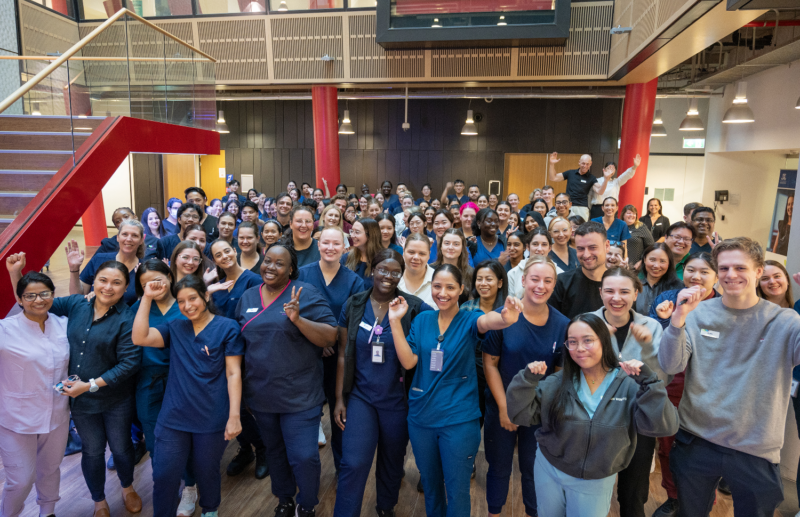
On 5 February the first group of 114 graduate nurses and midwives commenced at Western Health for 2024. They join our Mental Health & Wellbeing nursing graduates that recently commenced in late January. It’s great to see that 34 of our Registered Undergraduate Student of Nursing (RUSONs) are staying with us in graduate nurse roles, continuing to build their education, training and experience.
This year we have over 300 graduate nurses starting their career with us, and as Western Health gets larger it is important that we all work together to ensure that our early career nurses don’t get lost in the crowd.
After a week of induction, they hit our wards on 12 February and have been made to feel welcome as they quickly joined our teams, getting support and guidance from their new colleagues, preceptors, educators and Clinical Support Nurses.
A huge welcome to you all!
Welcome to our newest midwifery Grads!
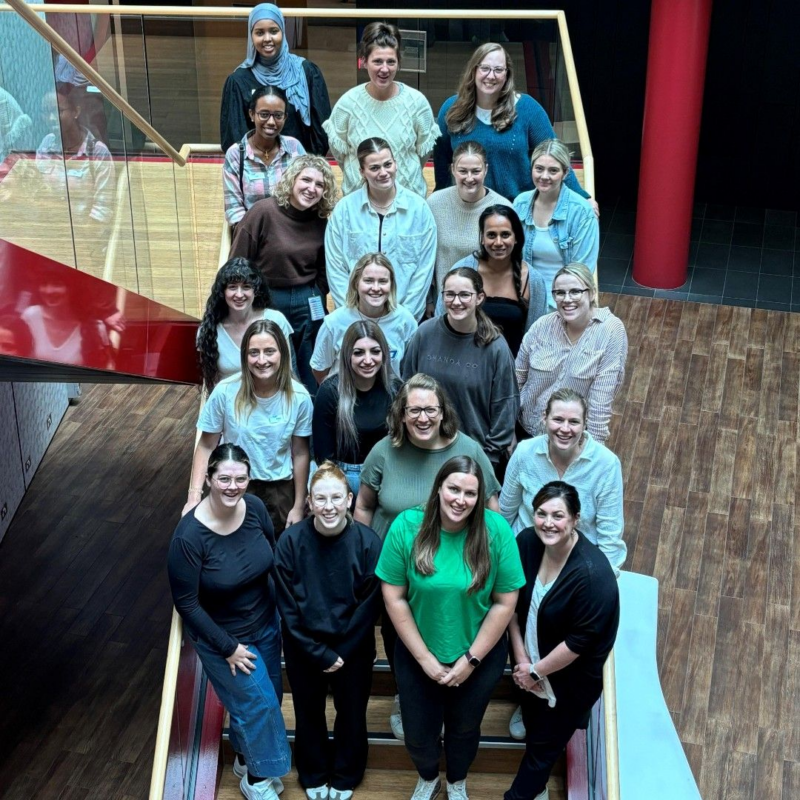
On 12 February 2024 21 Graduate Midwives commenced their career at Western Health.
This year we have 76 graduate midwives joining us as part of four graduate midwife intakes for Western Health in 2024. They’ve come from Australian Catholic University, Deakin University, La Trobe University and Victoria University.
Please give them a warm welcome when you see them during their 12-month program at Bacchus Marsh Hospital and Joan Kirner Women’s and Children’s at Sunshine Hospital.
A big welcome to our newest midwives!
Accreditation final visit
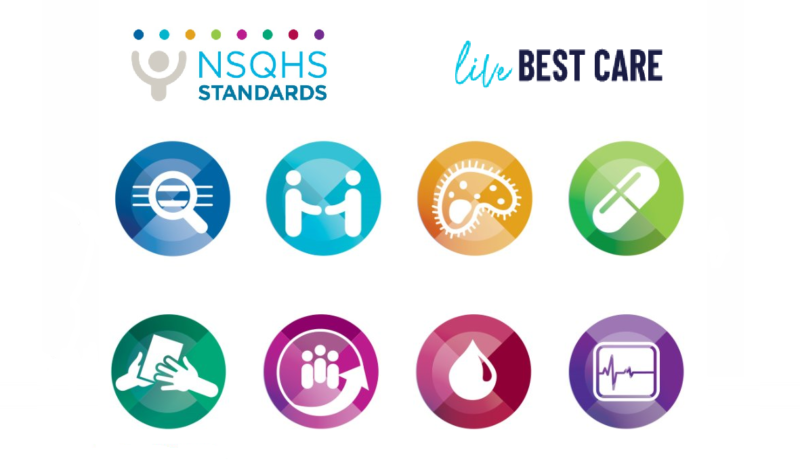
Western Health had an incredibly successful survey in December 2023 against the eight NSQHS Standards. There was high praise from the Surveyors about the standard of care, commitment to being person-centred, our culture of respect and teamwork and involvement and empowerment of consumers in their care.
There is one part of the Accreditation process though that we are still yet to complete. On 14 March 2024, two ACHS Surveyors will visit us to review a couple of areas identified in December as requiring some improvement; namely medical credentialing processes and the reporting of training data. We have undertaken considerable work over the past weeks to fully review and rectify/improve these areas. This work will be formally assessed by Surveyors on 14 March, with a final Survey Report issued after this visit and shared with staff.
Unfortunately our Lead Surveyor in December (Di Knight) is unable to return on 14 March to conduct this assessment. A very experienced ACHS Surveyor (Peter Clout) will take Di’s place for the 14 March visit. The other Surveyor (Jordan Kelly) was part of our Survey Team in December and assessed our clinical governance systems, including credentialing and scope of practice.
Whilst the visit will focus predominately on medical credentialing, while on site the Surveyors may also have a look at our processes for the credentialing and scope of practice of nursing and allied health practitioners.
Our Performance Unit and Education Team have completed some brilliant work to develop new Education Dashboards. These can be found via the Intranet’s Quick Links or via the following link: Report Index – Power BI, and a great QRG has been developed by one of our Acting NUMs. A new training procedure, called ‘Training requirements’ has also been created and is available on Prompt.
The Lead Surveyor for our 14 March visit has indicated they will randomly visit some of our clinical units to see if Managers are aware of the dashboards and know how to use them. Once Managers have seen how much easier the new dashboards make monitoring and engagement of staff in mandatory and other required training, I’m sure they will be pleased to be able to show them off to Surveyors if they get the chance.
Since the Surveyors will be in our clinical areas on 14 March, just a reminder to make sure your unit is looking spick and span on this day. Everyone did such a great job in decluttering and organising their areas in the lead up to December Survey that I’m sure they will still be looking great. The ‘Manager Accreditation Checklist and Top Tips’ are a handy resource if Managers want to refresh their accreditation readiness.
Stopping the spread of CPO
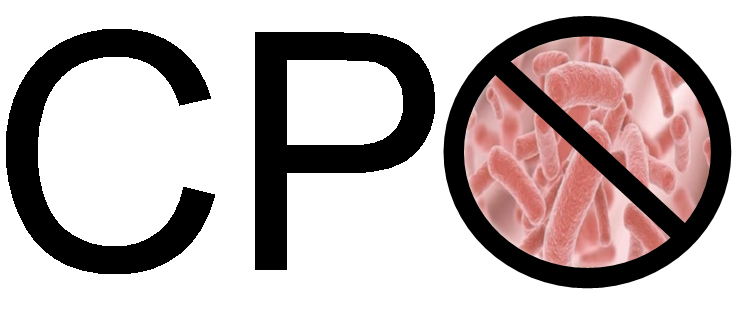
Carbapenemase-producing organism (CPO) is a collective term that refers to a group of bacteria that have become resistant to many antibiotics, including our last line of defence antibiotics called carbapenems.
Along with many other health services, Western Health has seen a rise in CPO cases since January 2024. Currently CPO is in 5 of our wards and unfortunately for the first time in our Western Health history some internal transmission has occurred. This is a notifiable event and our Infectious Diseases and Infection Prevention teams have been working with the Department of Health.
An Incident Management Team has been established to oversee the rapid implementation of short-term measures to decrease the risk of further internal transmission.
In addition, we’re asking all staff to continue adhering to standard infection prevention practices to help us stop the spread,
About CPO
Some people carry CPO in their gut and remain healthy but if the CPO moves from the gut to another part of the body, they may develop an infection and require treatment. The CPO produce an enzyme called carbapenemase that makes the antibiotic no longer effective in fighting infections, resulting in limited treatment options and often death.
CPO infections are rare in Australia and are usually associated with overseas hospital admissions or healthcare, particularly in parts of Europe, North America, the Middle East and Asia. Groups at increased risk of acquiring CPO include:
- people have had prolonged admissions to hospitals
- people who have received medical care or aged care overseas in the previous 12 months
- people who have been treated with multiple or repeated courses of antibiotics
- people with a weakened immune system or underling long-term medical conditions
- people with an indwelling medical device such as a urinary catheter.
What can I do?
Essentially, we just need all of our staff to adhere to standard infection prevention practices. Please be cognisant that every action that you do will impact on whether CPO is contained or spread – depending on how you do it!
Top tips for positively impacting on our ability to contain CPO:
- Screening: Finding CPO on people who carry CPO is essential to stop any spread. This is why we have an infection prevention infectious risk screening questionnaire in our EMR to be done on admission for all our patients – it is essential that this is done as early as possible, preferrably at the entry point (usually Emergency Department, Urgent Care Centres or Day Surgery Units). If someone has a history of being in an overseas hospital, having a procedure or being in a residential care facility in the last 12 months, a specimen to look for CPO (either a stool sample or a rectal swab) must be collected, patient isolated in single room, own bathroom. CPO High Risk alert placed, and Infection Prevention notified.
- Handover: as CPO is relatively new to Australia, there may be some staff that are not aware of what it is, and how serious it is. Please ensure that if a patient has CPO, or is a contact of CPO cases it is included in each handover to ensure that staff make good, informed decisions on how they practice. Check the infectious risk alerts to see why patients are in Contact precautions.
- Isolation: Contact transmission-based precautions are used in addition to standard precautions to prevent the spread of CPO. Contact precautions need to be followed, including wearing gloves and a gown before entering the room of a CPO patient, and taking them off prior to exiting. Patients with CPO are the highest priority for single rooms; however Infectious Diseases and Infection Prevention may approve cohorting of patients with the same strain of CPO.
- No equipment or devices to enter and exit rooms: Shared equipment and devices (including WOWs, vital signs machines, glucometers, and stethoscopes) can be the greatest spreaders of infection across hospitals. Nothing should be routinely entering and exiting rooms being used to isolate a patient with CPO. Western Health has recently moved to using disposable equipment and dedicated devices for use with all patients with CPO. Room computers should be used to avoid contaminated WoWs entering rooms.
- Carefully cleaning and disinfecting rooms: rooms need to be regularly cleaned and disinfected. CPO rooms also get ultra-violet marker testing to validate the cleaning effectiveness. Anything that does need to leave the room needs to be thoroughly cleaned and disinfected. Make sure that simple easy slip-ups don’t occur, like putting contaminated meal-trays on clean PPE trolleys.
- Shared patient equipment: if shared patient equipment must be used, it must be cleaned after each use. Small pieces of equipment must be cleaned using the disinfectant wipes, ensuring all surfaces are cleaned. Large pieces of equipment such as lifting hoists should be cleaned with Actichlor (chlorine based) product with microfibre cloths.
- Hand hygiene:ensure you undertake the 5 moments of hand hygiene and that there is alcoholic hand rub present at every bed side and point of care. Gloves should be removed, hand hygiene performed and gloves redonned when moving from contaminated area to clean area. Hand hygiene must be performed immediately before donning gloves, and immediately after removing gloves. Gloves should always be put on immediately prior to touching the patient in the room or cubicle, not outside the room. Gloves should not be kept on PPE trolley’s but inside the room to avoid cross contamination of gloves. Review Using gloves appropriately in healthcare (vimeo.com)
- Careful staff allocation: where possible, try to allocate staff that are caring for patient(s) with CPO so that they are not caring for patients without CPO to decrease the risk of transmission.
- Antimicrobial stewardship: This is the range of activities that reduces the unnecessary and inappropriate use of antibiotics to prevent and contain antimicrobial resistance. Antibiotics should only be dispensed and administered if they have the necessary approvals from our Infectious Diseases clinicians.
- Patient hand hygiene: patients will have hand wipes added to their meal trays to encourage hand hygiene prior to eating, to avoid oral ingestion of organisms from their environment. Please encourage patients to use the wipes before eating. Also remind patients to wash their hands after using the bathroom and to use the hand rubs if they ambulate around the ward or go out to the café’s on exiting and returning to their room.
Claire set to lead our Employee-Centred Rostering Implementation
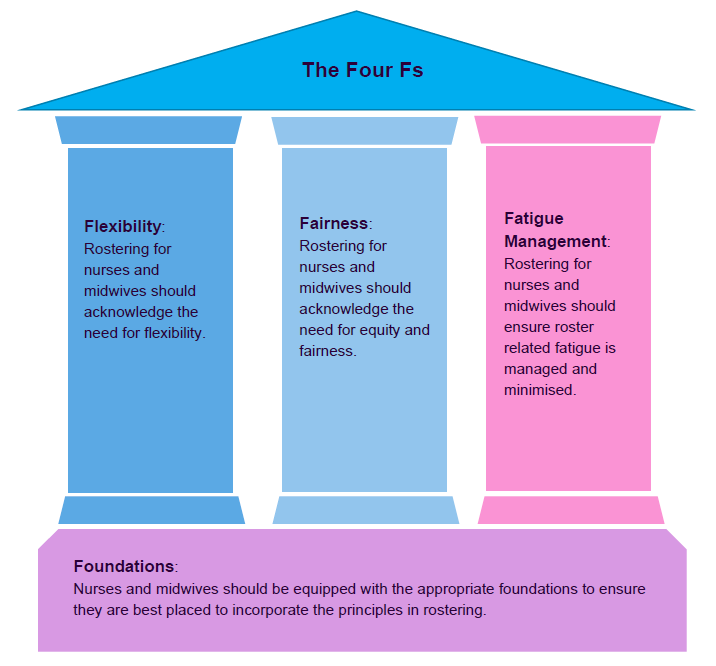
We are delighted to announce the appointment of Claire Rankin as the Project Lead for the Nursing & Midwifery Employee-centered Rostering Project.
Claire is well known to Western Health and brings vast experience and skills which has been developed over 17 years working as a nurse and midwife, in clinical, leadership and project roles. Most recently Claire has worked as the Acting Nurse Unit Manager for Custodial Health.
Claire has completed a Masters of Public Health/Masters of Health Management which has provided her with the theoretical understanding of improvement methodology and high level of understanding of the complex issues facing health care sector, particularly in the nursing and midwifery workforce space.
Claire will bring a passion for supporting Western Health’s nurses and midwives, not only in the work that they do, but in how they work. Leading this project that aims to ensure rosters meet their professional and personal lives whilst continuing to provide best care to our community.
Claire commenced her new role on Monday 26 February 2024.
What is this 'Additional Leave' on my pay slip?

A number of staff have asked what the ‘Additional Leave’ is on their pay slip, and how it works. We’re glad you asked!!
Additional annual leave entitlements became effective in the Nurses and Midwives Enterprise Agreement 2020-2024 from 1 July 2021. These entitlements are applicable to nurses and midwives who are:
- Full time nurses and midwives who work weekends 6 weeks per year.
- Part time nurses and midwives if they work 10 weekends per year.
Calculating Additional Leave entitlements
Here’s the tricky bit! All new staff are set up in payroll with 5 weeks of annual leave then the additional week accrues as ‘Additional Leave’ if they work the weekends.
For nurses or midwives that have split roles across 2 or more cost centres (as long as same payroll number) then Payroll will calculate all weekend hours worked irrespective of the location where it is worked. You will need to take the additional annual leave in a way that it is shared across all areas where you work.
The accrual is based on average hours worked in the fortnight when the weekend shift was counted – so is not calculated on base equivalent full-time (EFT) hours only. For example, a nurse or midwife who is contracted at 24 hours per week and works more than 10 weekends (or part of a weekend) will be entitled to one weeks’ Additional Leave (24 hours). However, if they regularly pick up extra shifts, they will be allocated leave at the EFT they actually work – not their base contracted hours. This is why some of you will have gained more than your base weekly hours in Additional Leave entitlements.
If you are routinely working over your contracted hours by picking up extra shifts, you will accrue more Additional Leave hours – which is great!
Essentially, Additional Leave is exactly the same as annual leave, it just appears separately and under a different name as it is calculated differently.
Mental Health & Wellbeing Nursing Workforce Sub-Plan released
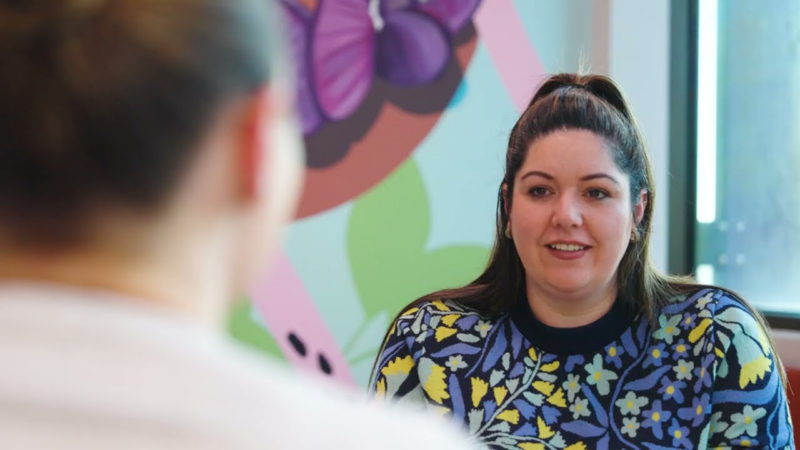
Following Western Health becoming a designated mental health and wellbeing service in mid-2023, from a workforce perspective we have some ambitious and challenging years ahead of us:
- The opening of the new 52 bed mental health and wellbeing facility at Sunshine Hospital will see the phased growth of inpatient beds in 2024.
- In 2025, the phased opening of the new Footscray Hospital, will see the opportunity to expand and grow our mental health and wellbeing beds with the inclusion of 2 new inpatient units within this new facility.
- In 2029, a phased opening of the new Melton Hospital – a new tertiary hospital which will include a 24-hour emergency department and new mental health and wellbeing services will further see a significant growth in service.
Our Nursing & Midwifery Workforce Plan 2022-2026 identified these challenges and includes many actions that will support our mental health and wellbeing nursing workforce. There are many factors, both internally and externally, that impact on workforce management. Our planned growth is occurring in a time of profound workforce shortages across the health sector, therefore an informed, focused, strategic and robust sub-plan is vital to ensure that we maintain, grow and enhance an engaged, committed, robust and skilled workforce to ensure that we meet the mental health requirements of the community we serve.
To support this, Western Health’s Mental Health & Wellbeing Nursing Workforce Sub-Plan 2023-26 has recently been released, following extensive analysis of our data and consultation with our workforce. I sincerely appreciate the insights, ideas and feedback of everyone involved. I believe that the valued input of our nurses and leaders has resulted in a robust, ambitious yet achievable sub-plan. For easier reading, we also have a Plan-on-a-Page that summarises the planned actions.
The Sub-Plan sits underneath Western Health’s Nursing & Midwifery Workforce Plan. We know that the sub-plan will need to be dynamic and fluid, to ensure that it meets the needs of a rapidly growing and evolving health service in an environment where unprecedented sector-wide workforce issues exist. To be successful, all levels of the organisation will need to work together collaboratively – therefore the implementation will be led by our Nursing & Midwifery Advisory Committee.
Enterprise Agreement update
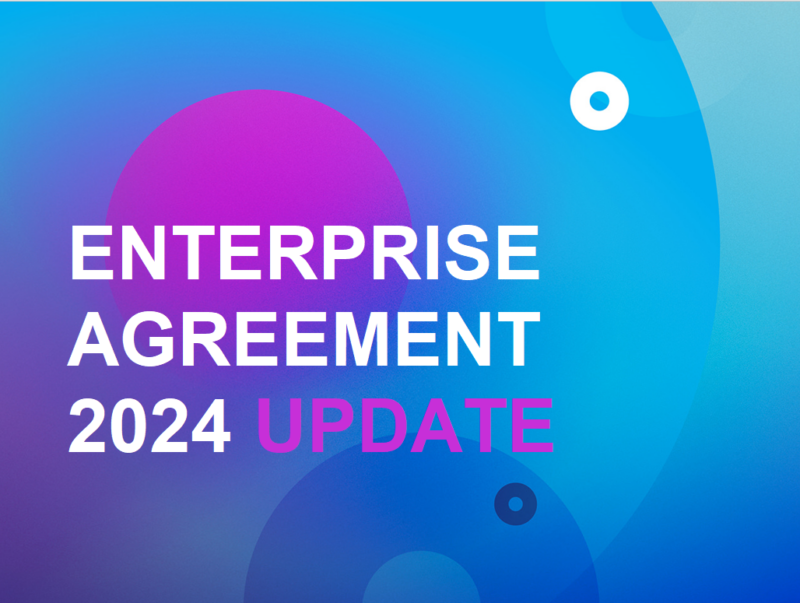
The current Nurses and Midwives (Victorian Public Sector)(Single Interest Employers) Enterprise Agreement expires on 30 April 2024. A new Enterprise Agreement (EA) is now being negotiated. The current Victorian Public Mental Health Services Enterprise Agreement expires in December 2024 and will be renegotiated during the second half of the year.
Current status
Western Health has been actively contributing to the negotiations with Deputy Executive Director Nursing & Midwifery and People & Culture representation at reference group meetings.
Western Health has also been part of a process led by the Victorian Hospital Industrial Association (VHIA) to calculate the cost of each of the unions’ claims to help inform decisions on which claims can be funded and any savings that can be predicted. This process has been completed and submitted to the Department of Health for their consideration.
In the meantime, negotiations continue between unions (ANMF, HWU and HACSU) and the VHIA. With the current agreement due to expire on 30 April 2024 the parties have been meeting usually two days per week, to discuss both the employee and employer claims.
The negotiation process involves each of the parties explaining the purpose of each claim so that the intention is fully understood, and then discussing how it could be applied in a way that does lead to any unintended consequences. The parties formally respond to each of the claims, which allows for claims to be adjusted where possible to allow for agreement.
There does continue to be claims that remain unresolved where parties have yet to reach agreement, and many of these relate to claims that do not align with the Government’s wages policy.
Western Health continues to be hopeful that an agreement will be reached prior to the agreement expiring.
Next steps
During March 2024 unions will hold their first report-back meetings where they will give details on how the negotiations have progressed.
Western Health will continue to keep our nurses and midwives updated on progress too.
It is anticipated a draft Enterprise Agreement will be put to nurses and midwives to consider during March/April. At that time the unions will advise their members on voting to accept or reject the offered agreement and will advise on voting rights and obligations of members.
Keeping informed
Western Health will continue to provide regular updates on the outcomes of the bargaining process and how the new enterprise agreements for 2024-2028 are progressing.
Unions will also provide information to their members through regular publications, notices and report-back meetings.
Any queries or concerns can be discussed confidentially with the relevant Divisional Director of Nursing & Midwifery, Deputy Executive Director of Nursing & Midwifery or People & Culture Business Partner.
Pressure Injury Surveillance Devices now in the EMR
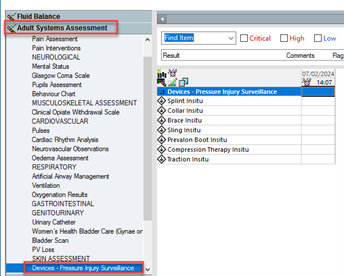
To help support the documentation of pressure injury surveillance and nursing care provided to patients with devices, a new “Devices – Pressure Injury Surveillance” assessment has been created in iView – Adult Systems Assessment band (directly underneath the SKIN assessment band).
The assessment is also available in the Adult ICU General iView band for easy access by ICU Nursing staff.
Nursing staff now have a place to document splints, collars, braces, slings, Prevalon Boots, compression therapy and traction in iView. Each section allows you to document the type, site, pressure injury regime, skin checks and free text comments.
If a patient has one of these devices insitu, pressure injury surveillance should be attended to once per shift or more frequently if required. This includes completing a thorough skin integrity assessment, checking for pressure injuries and providing hygiene to the affected area. Assessment findings and care provided should then be documented in new “Devices – Pressure Injury Surveillance” assessment.
Additionally, the Wound Chart in the EMR has been updated to incorporate a Simple Wound Advisory Flow Chart to assist in identifying wound types, treatment aims and dressing management. This has been added as reference text to the “Wound Type” DTA.
The “Devices – Pressure Injury Surveillance tool” went live in EMR on 21 February 2024.
IV Pump Medication Safety Drug Library update
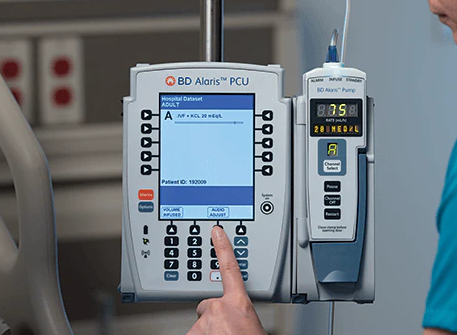
The medication safety drug library for Alaris PC Intravenous Infusion Pumps has been revised to incorporate several medication changes with medical, nursing and pharmacy consultation. The new dataset, Western Health v6.1, is being released via the wireless network for all Western Health sites (excluding Bacchus Marsh and Melton sites) on Friday, the 1st of March 2024 (at 7:30am).
An infusion pump must be turned on for the dataset to be downloaded via the wireless network. You will need to allow 2-3 minutes for the new dataset to be downloaded. Once the dataset has been downloaded (Wi-Fi light will stop flashing), switch the pump off. The new dataset will be activated when the pump is next switched on and the user selects NEW patient.
Please ensure that all pumps in storage have the dataset activated via the above method and that the new dataset Western Health V: 6.1 is visible on pumps, before using it for any new patients. Your ward pharmacist can assist if required.
This update of the drug library includes:
- New datasets for: pantoprazole, fluconazole (neonatal profile), tranexamic acid (paediatric profile).
- Changes to align with PPG: Potassium chloride (neonatal profile), glucose (neonatal profile).
- Dexmedetomidine in ICU/theatres profile, new clinical advisory:
“Maximum weight entered must not exceed 100kg. This is the Maximum weight cap”. - Ertapenem concentration change.
- Trimethoprim/sulfamethoxazole dosing and concentration limits optimisation.
- Albumin updated to reflect change from 4% to 5% product and streamlining of volumes in the paediatric profile.
- Deletion of ranitidine since it is no longer available.
For further information, contact the Electronic Medicines Management Senior Pharmacist Ph: 0468 565 463 or via email emeds.pharmacist@wh.org.au or Biomedical Engineering Services at your site.
Nursing research funded to support Aboriginal diabetes health

Nursing researchers from Western Health have received $484,836 in funding from the Federal Government’s Medical Research Future Fund (MRFF).
MRFF funding supports clinical trials to test the effectiveness and safety of new healthcare treatments, aiming to fill gaps in areas that need more research, support emerging researchers and their teams, and help researchers develop and bring their ideas to market earlier.
Professor Bodil Rasmussen will lead a potentially groundbreaking, life-changing health research project on Guided Self-Determination: a co-designed self-management program for Aboriginal and/or Torres Strait Islander peoples living with type 2 diabetes. She will work with co-contributing researcher Tanya Druce our Aboriginal Health Research Lead.
Diabetes contributes to 3.3% of the total disease burden experienced by Aboriginal and/or Torres Strait Islander peoples. Type 2 diabetes is a significant contributor to morbidity and mortality among Aboriginal and/or Torres Strait Islander peoples and poses an additional risk of multi-morbidity. There is a need for evidence-based, co-designed strategies to support self-determination in diabetes care for Aboriginal and/or Torres Strait Islander peoples.
This project aims to determine the feasibility and acceptability of a culturally tailored Guided Self-Determination (GSD) program to improve diabetes self-management and well-being for Aboriginal and/or Torres Strait Islander peoples living with type 2 diabetes. The GSD program will empower Aboriginal and/or Torres Strait Islander peoples, enable self-determination in the management of their type 2 diabetes and help to improve their wellbeing and quality of life.
Become an EMPOWIR resolution officer
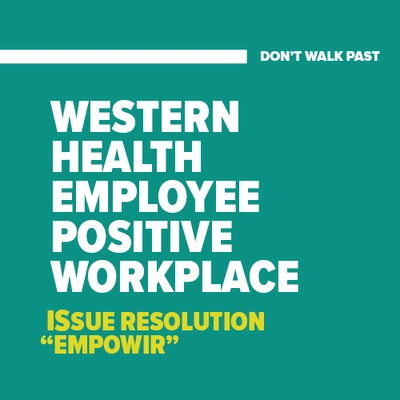
As part of Western Health’s Positive Workplace strategy, EMPOWIR (Employee Positive Workplace Issue Resolution) was developed to provide a safe, informal and confidential process to deal with inappropriate workplace behaviours.
Before EMPOWIR the only way to deal with inappropriate workplace behaviours was through the HR disciplinary process, however EMPOWIR provides employees with an alternative mechanism to address workplace conflict.
EMPOWIR is a peer led process and is dependent upon a few WH employees volunteering their time as positive workplace contact officers (PWCO) and positive workplace resolution officers (PWRO) for its success. WH currently has a small cohort of committed positive workplace contact and positive workplace resolution officers and so we are now seeking Expressions of Interest from our employees to expand this group.
Western Health is seeking individuals from all areas of the organisation with strong communication skills who are enthusiastic about supporting the organisation to build and maintain a positive workplace. Members of our diverse employee community are encouraged to apply.
Click here to see details on how to express your interest.
Stay current with the new EMR updates page
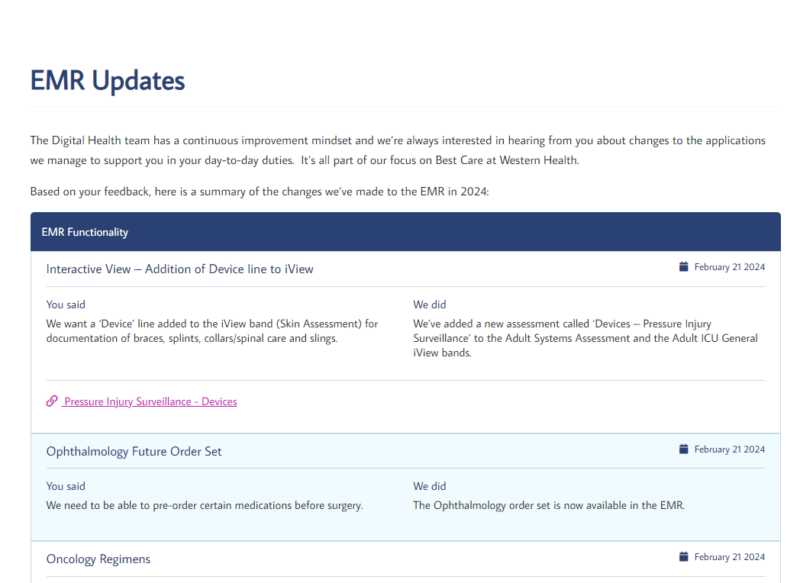
The Digital Health team continues to collaborate with staff and external stakeholders to implement changes that enhance the usability of the EMR and associated systems.
Based on feedback from staff who expressed a desire to stay informed about EMR changes, we have created a new EMR updates page. We encourage all staff to bookmark this in your browser to stay current with the EMR changes we are implementing, to assist you in focusing on Best Care at Western Health!
In addition to the EMR, we collaborate with various teams across Western Health to support numerous applications and systems. You can learn more about how we can support you, including the process for EMR change requests on the Digital Health Support page.
A larger Westside Lodge now open
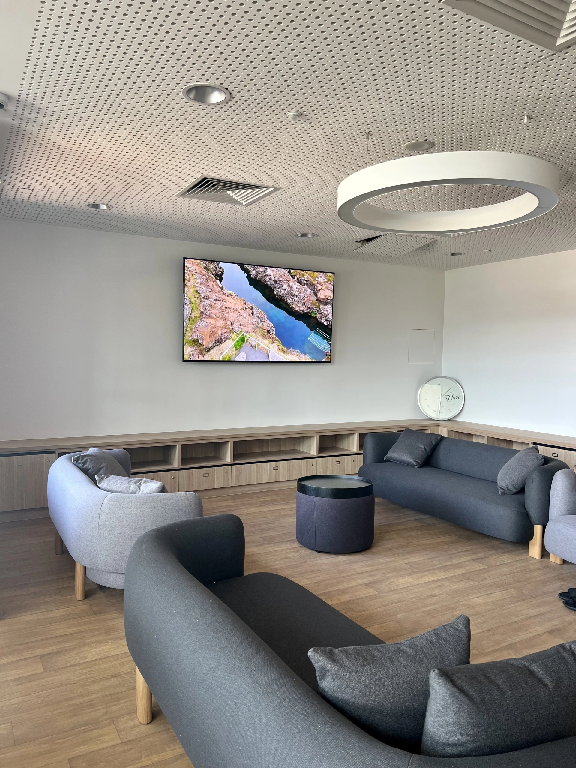
Westside Lodge, our dual diagnosis residential rehabilitation facility at Sunshine Hospital opened its new expanded 10 additional beds in late February 2024.
The service can now accommodate 30 clients with the addition of 10 new bedrooms, who can use a large client kitchen and communal spaces, including dining and lounges areas. The beautiful new unit will provide a more comfortable experience for clients receiving specialist mental health and alcohol and other drug treatment at the facility.
Nursing Unit Manager Linda Kelly said new clients are being welcomed across the next week, and client numbers will continue to build until they reach the increased capacity of 30 clients at the end of May.
The final stage of the expansion has also seen improvements to staff amenities, with the completion of new workspaces in ‘Staff central’, meeting rooms and upgraded IT infrastructure, that have been well received by staff.
“There’s been a lot of excitement this week while exploring the new spaces. The client group has embraced the changes and we’re already seeing what a positive impact our new facilities will have at Westside Lodge.”
Recruitment is underway for additional staff and an official opening is expected next month.
MacHSR Future Leaders Fellowship program applications open
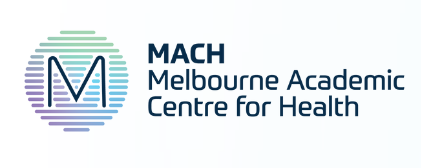
The Melbourne Academic Centre for Health (MACH) recently announced that they are now recruiting for the next cohort of MacHSR Fellows.
MacHSR is a Health Services Research training fellowship program for established front-line health professionals, including nurses and midwives. The program will support a select cohort to address problems pertinent to their health services. Projects that address aspects of healthcare sustainability, or the healthcare of Aboriginal and Torres Strait Islander people and people from culturally and linguistically diverse backgrounds are encouraged by MACH.
Each Fellow will upskill in Health Services Research before being released from clinical duties for one day per week for 12 months, on a flexible basis and with no detriment to salary, to work with an expert academic supervisor to address their identified problem.
- Formal HSR training
- Protected research time
- Expert supervision
- Networking opportunities
Full details available on the MACH website.
Applications close 9am Wednesday 3 April 2024.
Western Health at Pride March 2024

It was wonderful to see so many Western Health staff members join the rainbow wave at the Midsumma Pride March on 4 February 2024.
Not even scorching summer temperatures of 38 degrees could cool the enthusiasm of marchers as they made their way along Fitzroy Street in St Kilda on Sunday.
Staff joined tens of thousands of people who came together to celebrate solidarity in gender and sexual diversity.
Thank you to all members of the LGBTQIA+ community, allies, friends, family and supporters who participated in the 2024 Pride March.
Sunshine Emergency Department Refurbishment Underway

Pathways of travel in the Sunshine Hospital Emergency Department (SHED) will be impacted from Monday 26 February 2024 due to the commencement of refurbishment works in the Adult Acute cubicles and staff base.
The works are the final part of the SHED Expansion Project and focus on the renewal of the original ED cubicles and staff base.
Please be aware that paths of travel and access will change frequently throughout this project. Signage in the department will mark closed spaces and provide further wayfinding information.
Stage 1 – Old Resus, Pantry & Main Medication Room -26 February 2024 (4 weeks)
- The main Medication room will be moved to the small drug room where cubicles 33 – 41 are located
- The main pantry will be relocated and shared with the Short Stay Unit.
The refurbishment project is expected to be completed around the end of October this year.
Benchmarking Best Care
The latest benchmark reports from the Health Roundtable that go up to September 2023 have recently been released, that show how our delivery of Best Care compares to other health services across Australasia.
Let’s look at how we perform in the area of hospital acquired infections. Hospital acquired infections include urinary tract infections, surgical site infection, pneumonia, blood stream infection, central line and peripheral line associated bloodstream infection, multi-resistant organisms, infection associated with prosthetics/implantable devices, gastrointestinal infections and other high impact infections.
Hospital Acquired Infections:
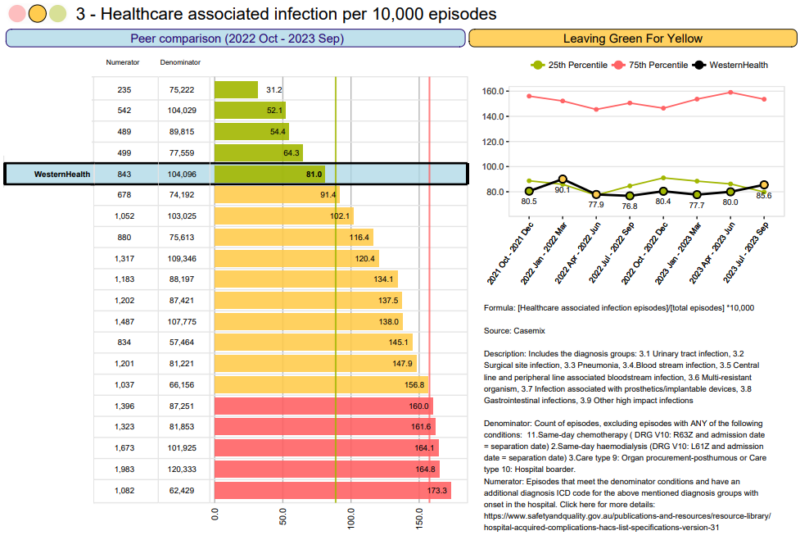
The rates of hospital acquired infections at Western Health has been consistently green but entered into the low amber last quarter.
This means that our patients get far less hospital acquired infections that we do at peer hospitals. This is a wonderful result.
Remember, you can impact these results through:
- Gloves should always be clean: gloves should always be changed between patients, and clean gloves are always required when undertaking any procedure. Hand hygiene is required between changes of gloves, and alcoholic hand rub must never be applied to gloves.
- Hand Hygiene: ensure you undertake the 5 moments of hand hygiene and that there is alcoholic hand rub present at every bed side and point of care.
- Correct skin preparation: whenever an invasive device is being inserted, chlorhexidine skin preparation must be utilised. An alcohol wipe is never an appropriate skin preparation.
- Antiseptic non-touch technique (ANTT): when inserting, accessing, dressing or removing any invasive device, ANTT needs to be utilised. Also please ensure that you use a clean stainless steel dressing trolley, not a kidney dish, bedside table or the patient’s bed.
- Only insert a device if it is needed: Always ‘hesitate before you cannulate’. Does the patient really need that device inserted? Never insert a device ‘just in case’. Any invasive device is a potential source of infection, so let’s minimise them where we can.
- Remove the device as soon as it is not needed: As soon as a device is no longer needed, remove it as quickly as possible. Ask medical staff to change IV orders to oral orders where appropriate. The longer devices are in situ, the greater the risk of an infection occurring.
Educational Opportunities
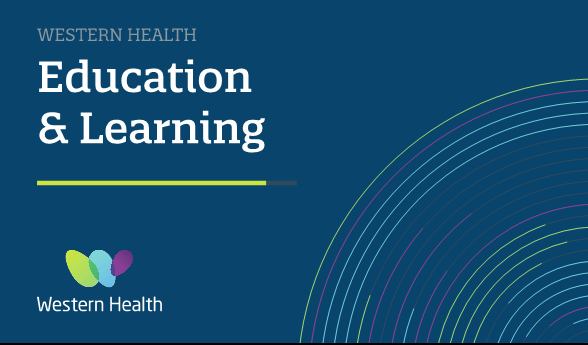
Upcoming courses being offered to Western Health nurses and midwives:
March 2024
- 5 – Deteriorating Patient Study Day
- 7 – Pressure Injury Study Day
- 12 – Wound Care Study Day
- 13 – Renal Study Day
- 14 – Advanced Life Support Level 2 (ALS2), refer to WeLearn for registration and further dates
- 19 – CVAD Workshop
- 19 – Community Study Day
- 27 – Preceptorship Study Day
April 2024
- 18 – Diabetes Study Day
- 23 – Deteriorating Patient Study Day
- 30 – CVAD Workshop
- 30 – Surgical Advanced Study Day
Please visit the Education and Learning link for more courses.
Emerging Evidence
The Western Health Library Service is a great source for locating the latest nursing and midwifery related evidence-based practice and research.
Latest articles of interest:
- “I always felt like I wasn’t supposed to be there”. An international qualitative study of fathers’ engagement in family healthcare during transition to fatherhood. Midwifery. 2024: March. Full Text Western Health Author
- Community Practices, Published Guidelines, and Evidence Base Surrounding Breast Milk Handling and Storage: A Qualitative Study. Breastfeeding Medicine. 2024: February. Request Article Western Health Author
- An assessment of ten popular pregnancy applications (Apps) available for women in Australia. International Journal of Medical Informatics. 2024: February. Full Text Western Health Author
- Development of the essential learning outcomes for the midwifery student continuity of care learning model: A Delphi study. Women and Birth. 2024: January Full Text Western Health Author
- Barriers and enablers to screening, management and referral of sleep disorders in patients attending cardiac rehabilitation: A qualitative descriptive study. Journal of Advanced Nursing. 2024: January. Full Text Western Health Author
- Direct oral anticoagulant use in hospitalized patients with atrial fibrillation across body mass index categories: design and rationale for a retrospective cohort study. Therapeutic Advances in Drug Safety. 2024: January Full Text Western Health Author
Department resource guides:
Easily find resources available via Western Health library, arranged by popular topic or department. This is most useful for those that don’t know where to start, and are looking for topic/subject focused e-Journals, eBooks or databases.
Here’s a sample:
Check it out now: Resources by department, service or topic
New library intranet interface:
With the launch of the new Western Health intranet, the library’s intranet homepage has also had a revamp.
Explore the library’s intranet homepage to find point of care resources, journals, books, eBooks and more…
- Go to the Western Health intranet homepage
- On the Top navigation, either click on:
Department & Services > “L” > “Library”, or
Education & Learning > On your right quick links “Library information / Quick links / Databases”.
Upcoming workshops:
- Introduction to literature searching | Tues 19 March | 2 – 3pm | Computer Training Room WCHRE | BOOK NOW
See a list of all our upcoming group workshops or book 1-on-1 training.
New arrivals:
Accessing the Library at Work:
Eligible staff can access electronic Intranet library resources from any networked PC or device connected to Wi-Fi network without the need to login.
Accessing the Library Remotely (off-site access):
When accessing electronic resources through the library website from offsite you will automatically be asked to enter your library membership number and surname. Library Membership is free and can be completed online. Please email the library if you experience issues.
For more information please contact the Western Health library team

